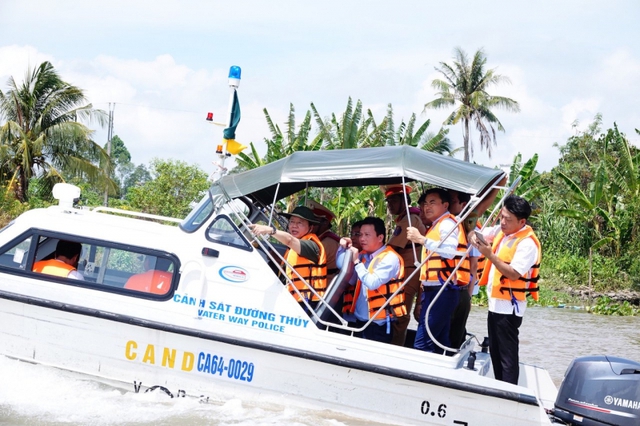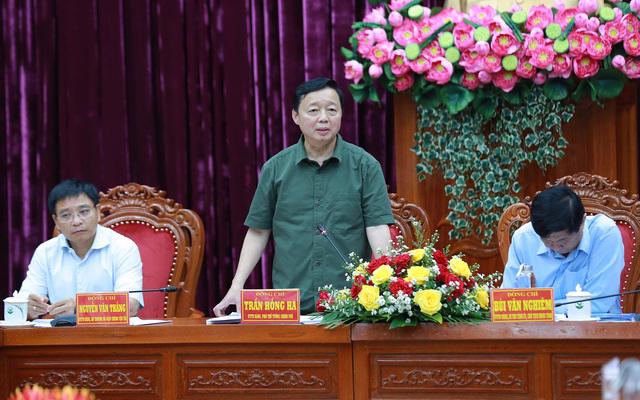Vietnam's ambitious plans for key transportation projects in the Mekong Delta and Southeast regions are being hampered by a severe shortage of sand, a critical component for road construction.
Deputy Prime Minister Tran Hong Ha, in a series of urgent meetings and field visits on May 11, called for immediate action to resolve the issue and ensure the timely completion of these vital infrastructure projects.
Sand Shortage Threatens Project Timelines
The Ministry of Transport has identified a shortfall of 26 million cubic meters of sand for 16 key transportation projects, which are crucial for inter-regional connectivity and economic development.
While some sand sources have been identified, the remaining deficit poses a significant challenge to project timelines.
In response to the crisis, the Ministry of Transport is exploring the use of sea sand as a potential alternative to river sand.
The Ministry of Natural Resources and Environment has already completed a project to evaluate the feasibility of exploiting sea sand in Soc Trang province, with estimated reserves of 145 million cubic meters. If successful, this could provide a much-needed solution to the sand shortage.
Deputy Prime Minister Calls for Swift Action
Deputy Prime Minister Tran Hong Ha has stressed the importance of ensuring the availability of sand for these projects, emphasizing their role in driving economic growth and improving livelihoods in the region.
He has urged all relevant ministries, departments, and local authorities to work together to identify and secure additional sand sources, streamline administrative procedures, and ensure strict compliance with environmental regulations.
During his field visits to affected communities, the Deputy Prime Minister acknowledged concerns about the potential environmental impact of sand mining activities.
He emphasized the need for thorough environmental impact assessments and the implementation of measures to mitigate any negative consequences.

The Deputy Prime Minister also stressed the importance of engaging with local communities and ensuring that their rights and interests are protected.
In addition to exploring sea sand, the Deputy Prime Minister has suggested that localities consider dredging alluvial grounds and sand dunes that obstruct river flow as a way to supplement sand sources.
This approach could not only provide additional sand for construction but also improve water navigation and reduce the risk of flooding.
Collaboration and Coordination Key to Success
The Deputy Prime Minister has called for greater collaboration and coordination between all stakeholders, including government agencies, contractors, and local communities, to address the sand shortage and ensure the successful completion of these critical infrastructure projects.
He has emphasized the need for transparency, accountability, and strict adherence to regulations to ensure sustainable and responsible sand mining practices.
The sand shortage crisis highlights the challenge of balancing development needs with environmental protection.
While the construction of transportation infrastructure is essential for economic growth and social progress, it is equally important to ensure that these activities are carried out in a way that minimizes environmental impact and protects the rights and livelihoods of local communities.
The Vietnamese government is committed to finding sustainable solutions to the sand shortage and ensuring that these key transportation projects are completed on time and within budget. By exploring alternative sand sources, streamlining administrative procedures, and prioritizing environmental protection and community engagement, Vietnam can achieve its development goals while safeguarding its natural resources and the well-being of its people.









 Google translate
Google translate